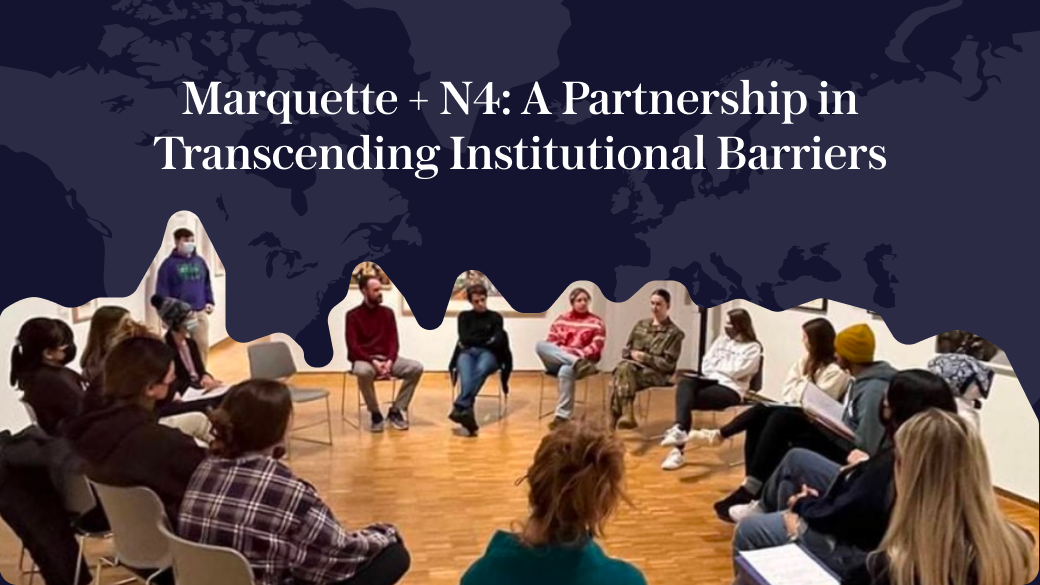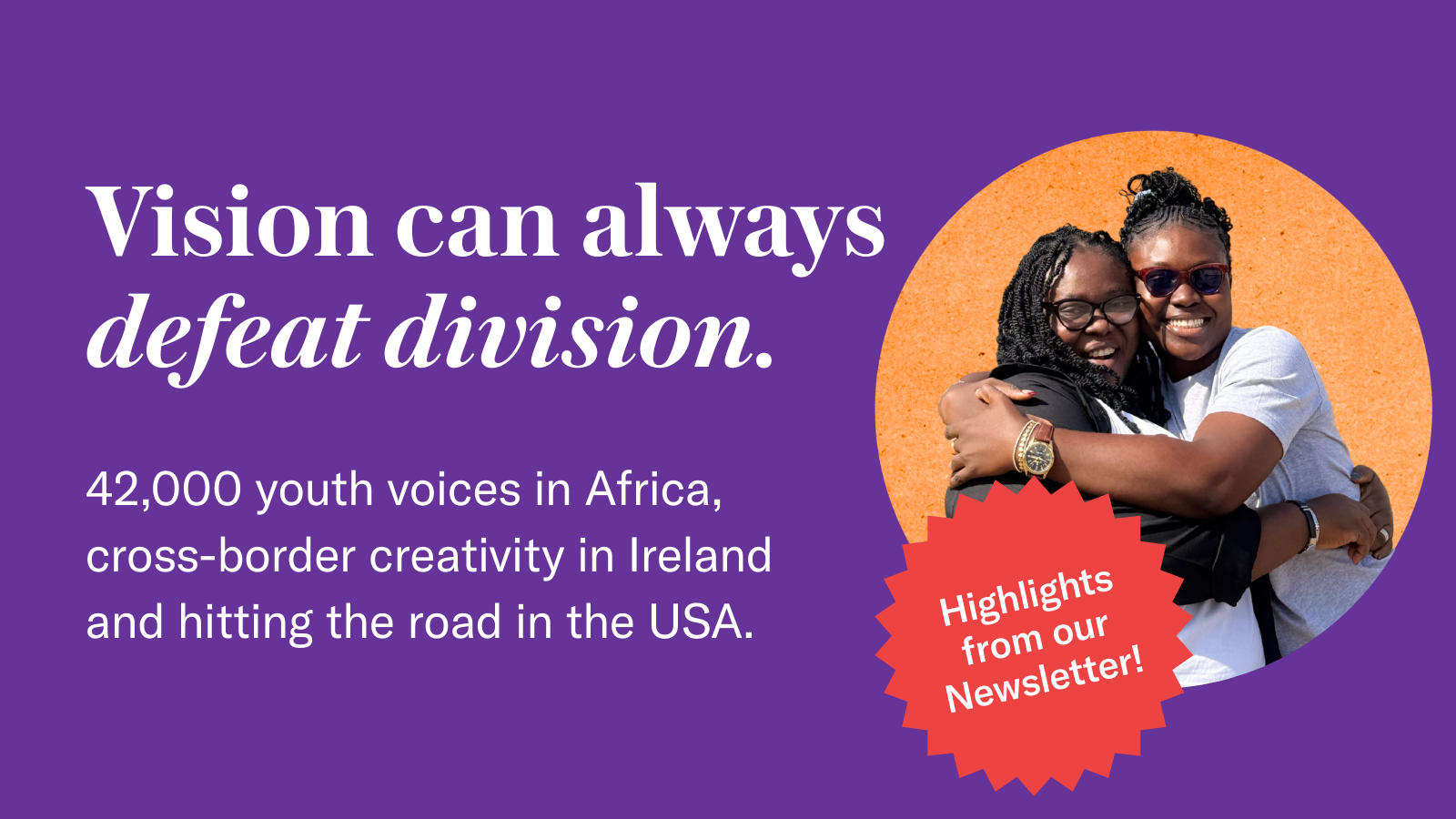Blog
Marquette + N4: A Partnership in Transcending Institutional Barriers

At Marquette University, two educators are leading the charge in bringing Narrative 4 practices to a groundbreaking program designed to include incarcerated and formerly incarcerated students in philosophy and ethics coursework.
Alex Gambacorta and Theresa Tobin collaborate on the Educational Preparedness Program (EPP), a transformative initiative that unites incarcerated, formerly incarcerated, and traditional degree-seeking students. Offering over 16 courses centered on themes like justice, freedom, the arts, and ethics, the program employs a unique “blended” strategy. Classes are held both on Marquette’s campus and in-person at a local prison, creating opportunities for students to engage with one another and bring conceptual theories to life through their shared experiences.
Alex, the Program Manager for the EPP, first encountered Narrative 4 through a course at Marquette led by Professor Leah Flack, an N4-trained facilitator. Captivated by the powerful methodology of the Story Exchange, Alex’s passion culminated in the launch of N4 @ Marquette, in collaboration with former Marquette student Mara McAndrews, which integrates Story Exchanges and other empathy-building techniques across multiple courses. Her first facilitation of an exchange was within a “blended” classroom with traditional degree-seeking students and formerly incarcerated students on Marquette’s campus as part of the EPP, a success that paved the way for broader adoption across the program.
Theresa Tobin, a professor of philosophy specializing in moral and social philosophy, has also embraced Narrative 4 to enrich her teaching, collaborating with Alex on further building out their inclusive programming. Compelled to move beyond conceptual understanding, Theresa revised her learning objectives to help students cultivate moral skills like empathy. She views the classroom as a space to practice not just intellectual engagement but also interpersonal and social growth, making Narrative 4’s methodology a perfect fit.
Together, Alex and Theresa presented their work at a national philosophy conference, highlighting the transformative impact of blending N4 practices with academic coursework. Their presentation introduced a fresh perspective to their peers, emphasizing the role of affective intelligence—the ability to understand and respond to others’ emotions—in higher education. The response from their professional community was overwhelmingly positive, underscoring the untapped potential of using empathy-driven methods in university settings.
The blended classroom model is central to EPP’s success. By bringing together incarcerated and traditional degree-seeking students, the program fosters opportunities to break down stereotypes, challenge stigma, and build relationships that transcend institutional barriers. Narrative 4’s practices, especially the Story Exchange, have proven invaluable in helping students see the complexities of others’ lives. These exchanges don’t just provide access to education but transform interpersonal and social dynamics on a broader scale.
Empathy is the cornerstone of the EPP curriculum. This semester in Theresa’s Philosophy course titled: Contemporary Ethical Problems, students engaged in coursework that prepared them to participate in a Story Exchange at the close of the term. A pre-exchange class session breaks down the concepts of empathy and sympathy, ensuring students are ready to engage deeply with one another. For many students, the experience has a profound impact. In one instance, a student remarked afterward that their mother, a teacher in Italy, could benefit from N4. Inspired by her child’s experience, she pursued N4 training and is now working with N4 Master Practitioner Valerie Striar to bring N4 to classrooms across Italy.
In addition to their university work, many incarcerated students participating in the EPP are active in restorative justice circles within the prison. These students have noticed parallels between the practices of restorative justice and Narrative 4, and they’re eager to expand N4 methods among their peers. Plans are already underway to pilot a program using N4 practices within the prison, creating new opportunities for dialogue and connection.
Through the Educational Preparedness Program and their commitment to Narrative 4, Alex and Theresa are redefining the possibilities of higher education—building empathy, transforming relationships, and expanding opportunities for connection far beyond the classroom walls.


